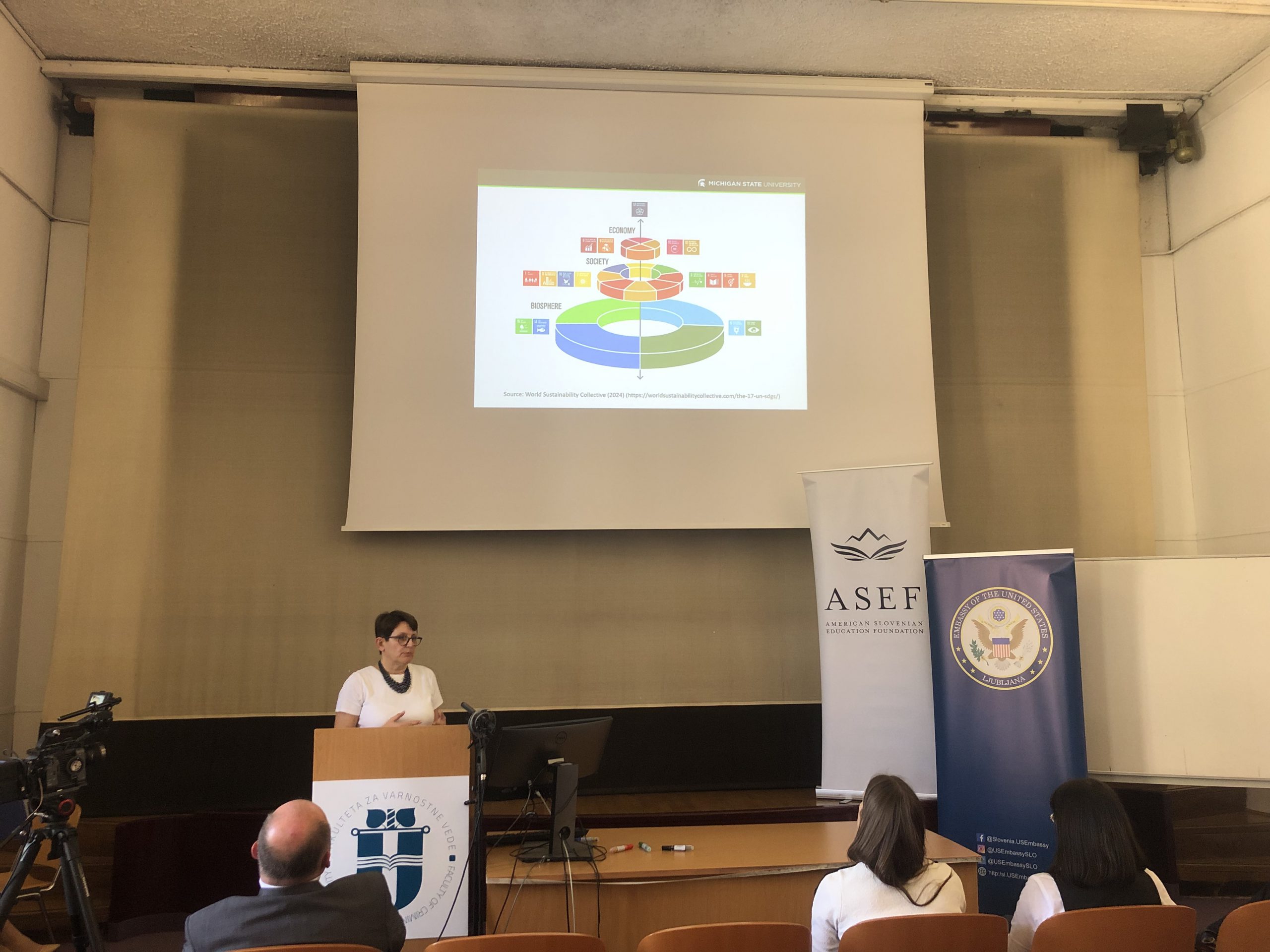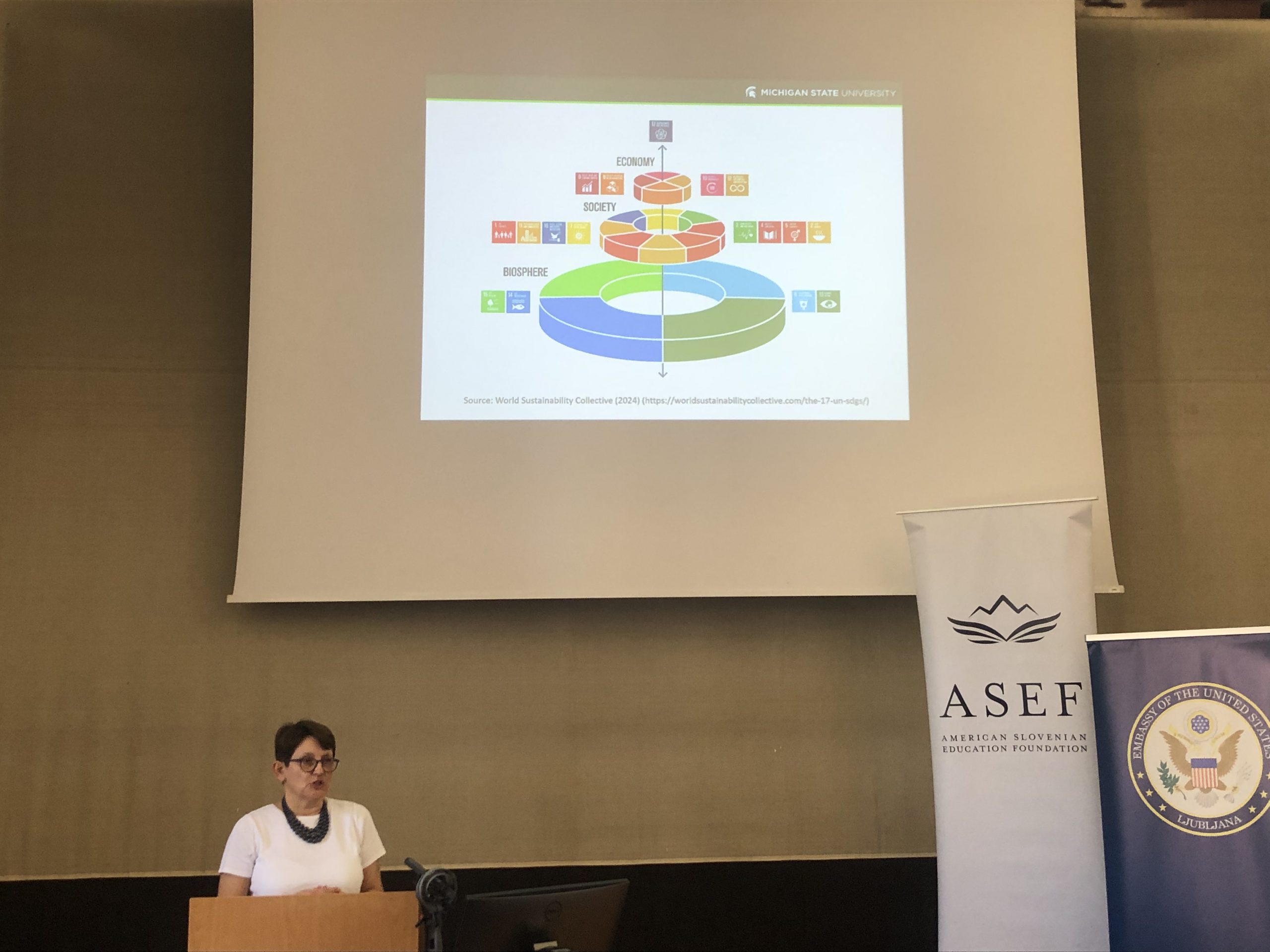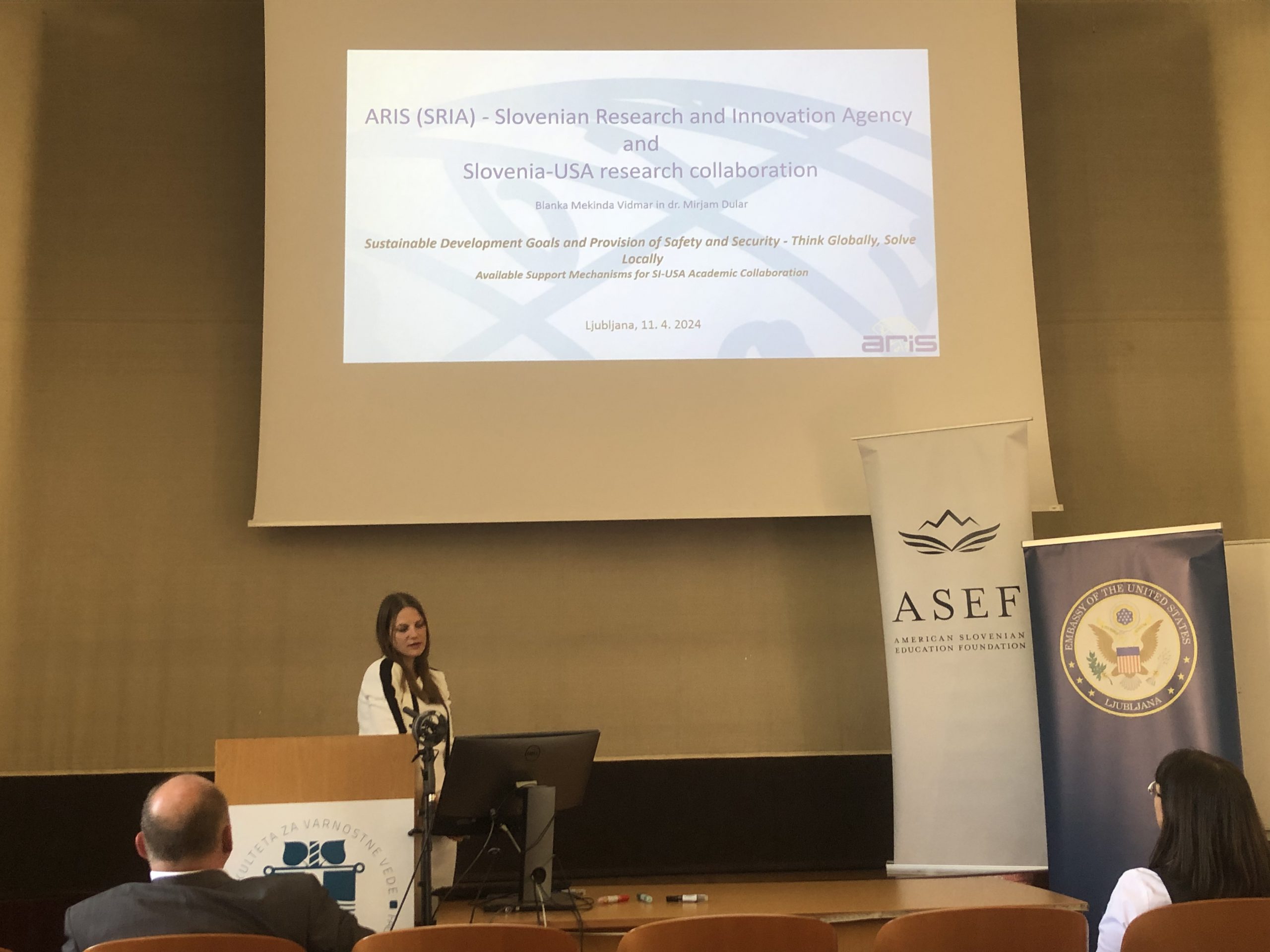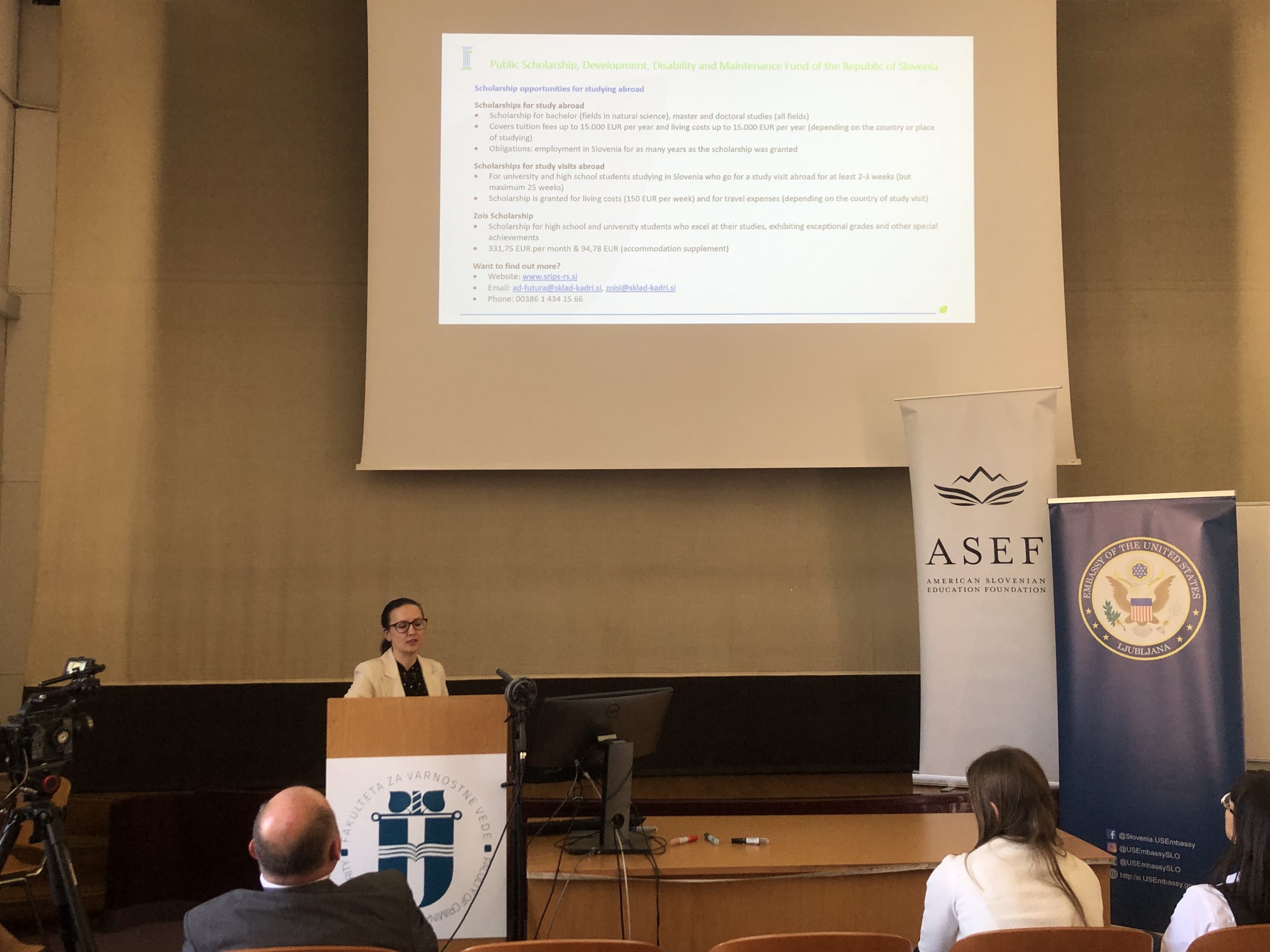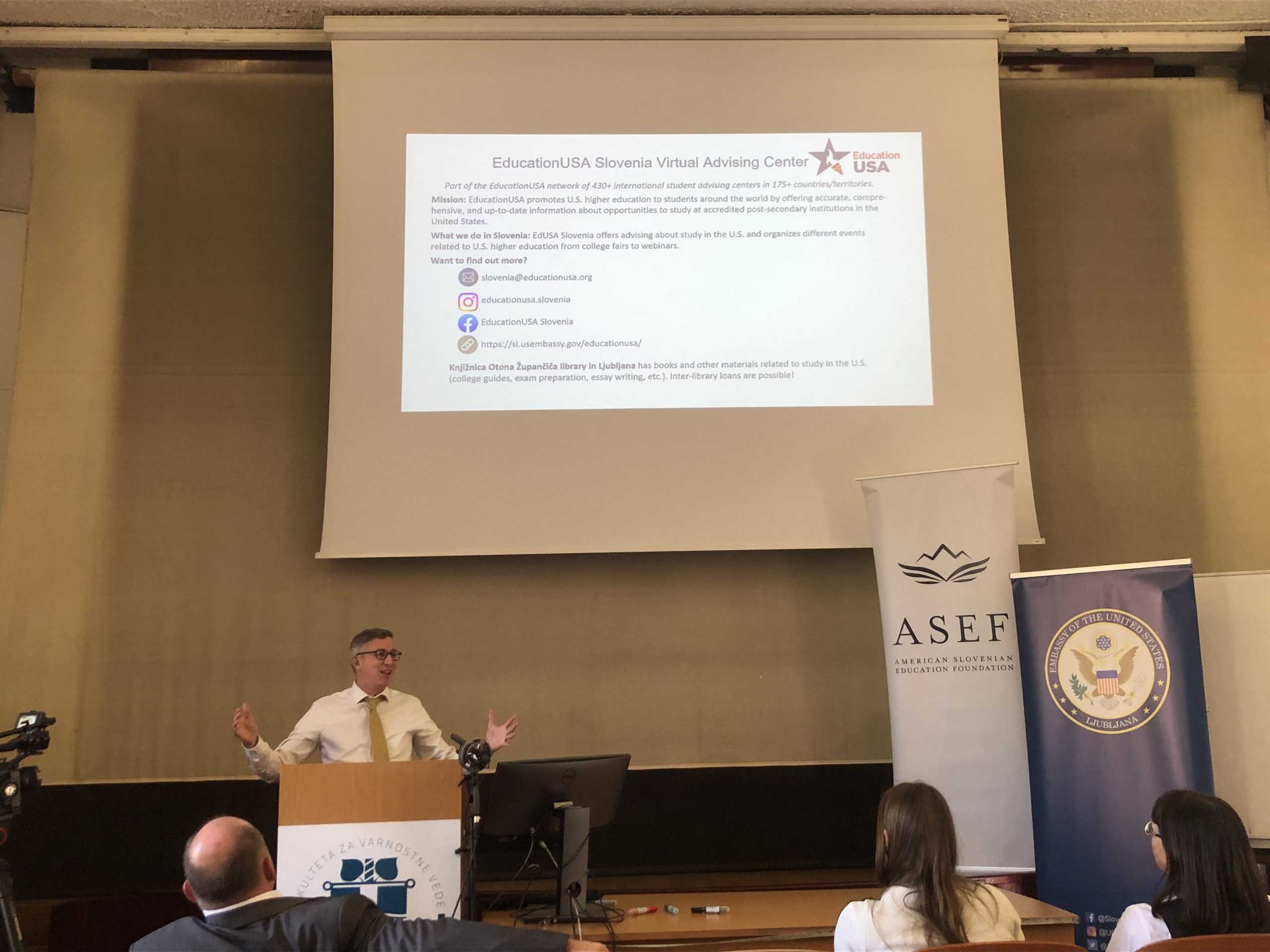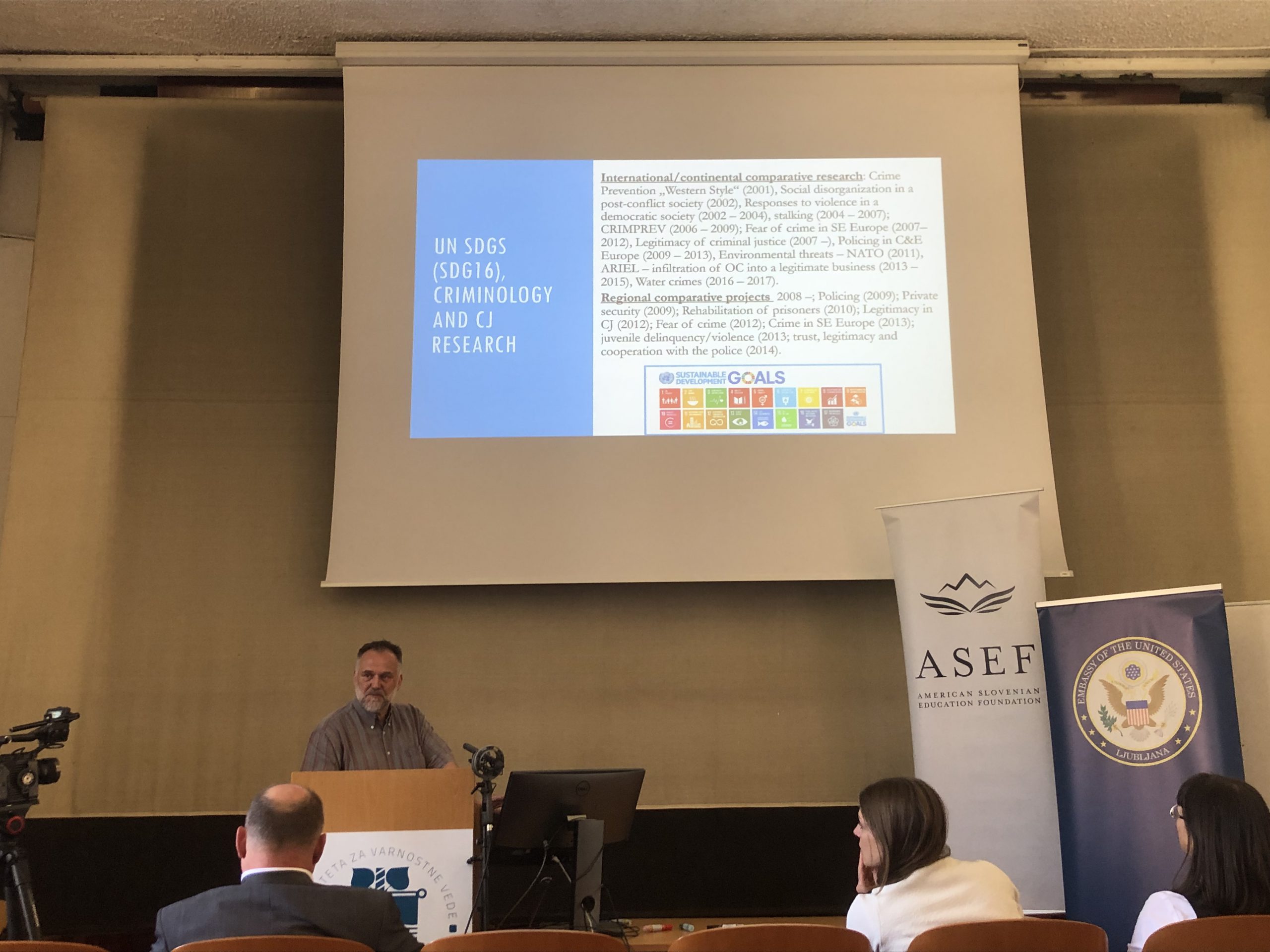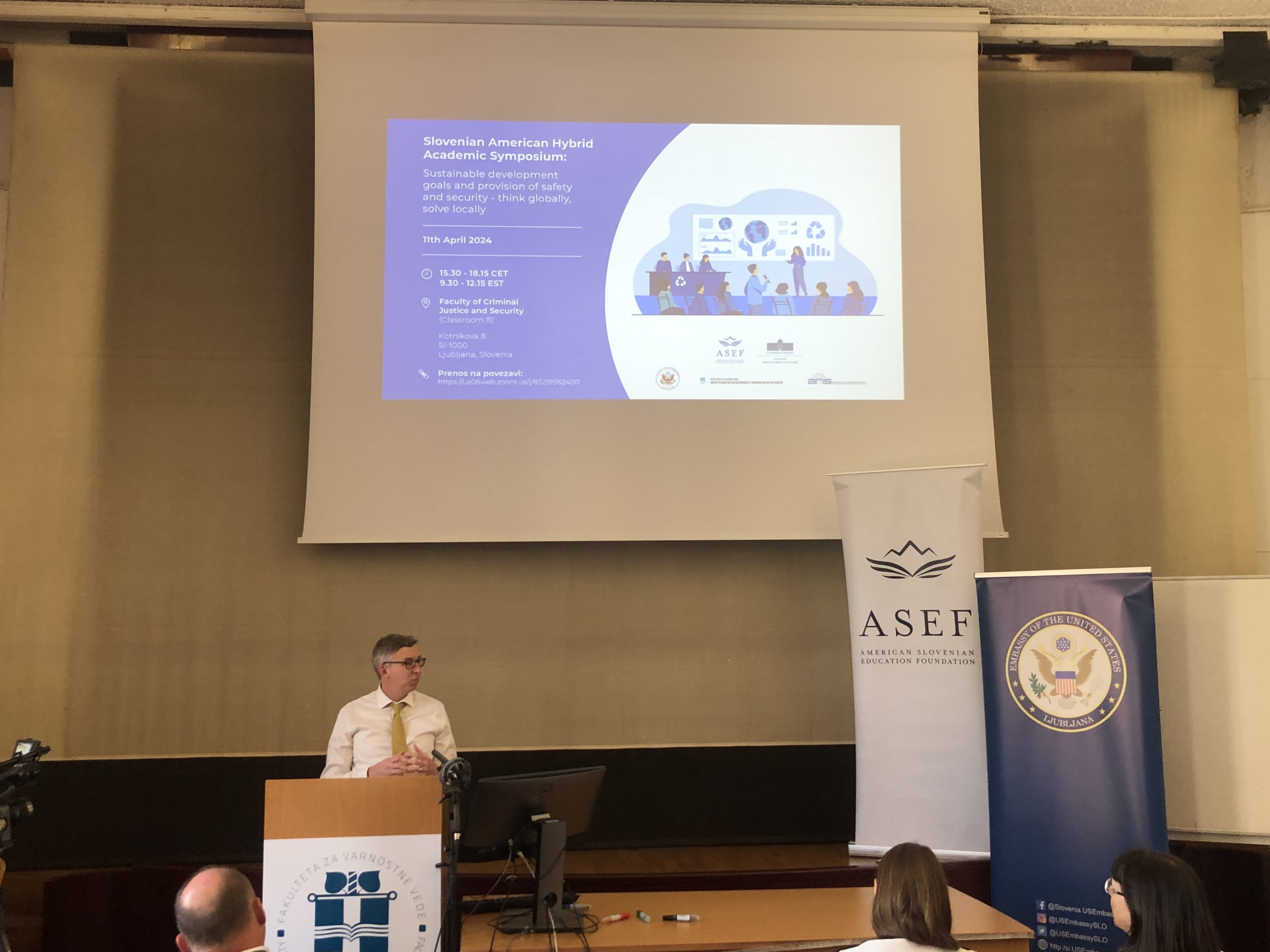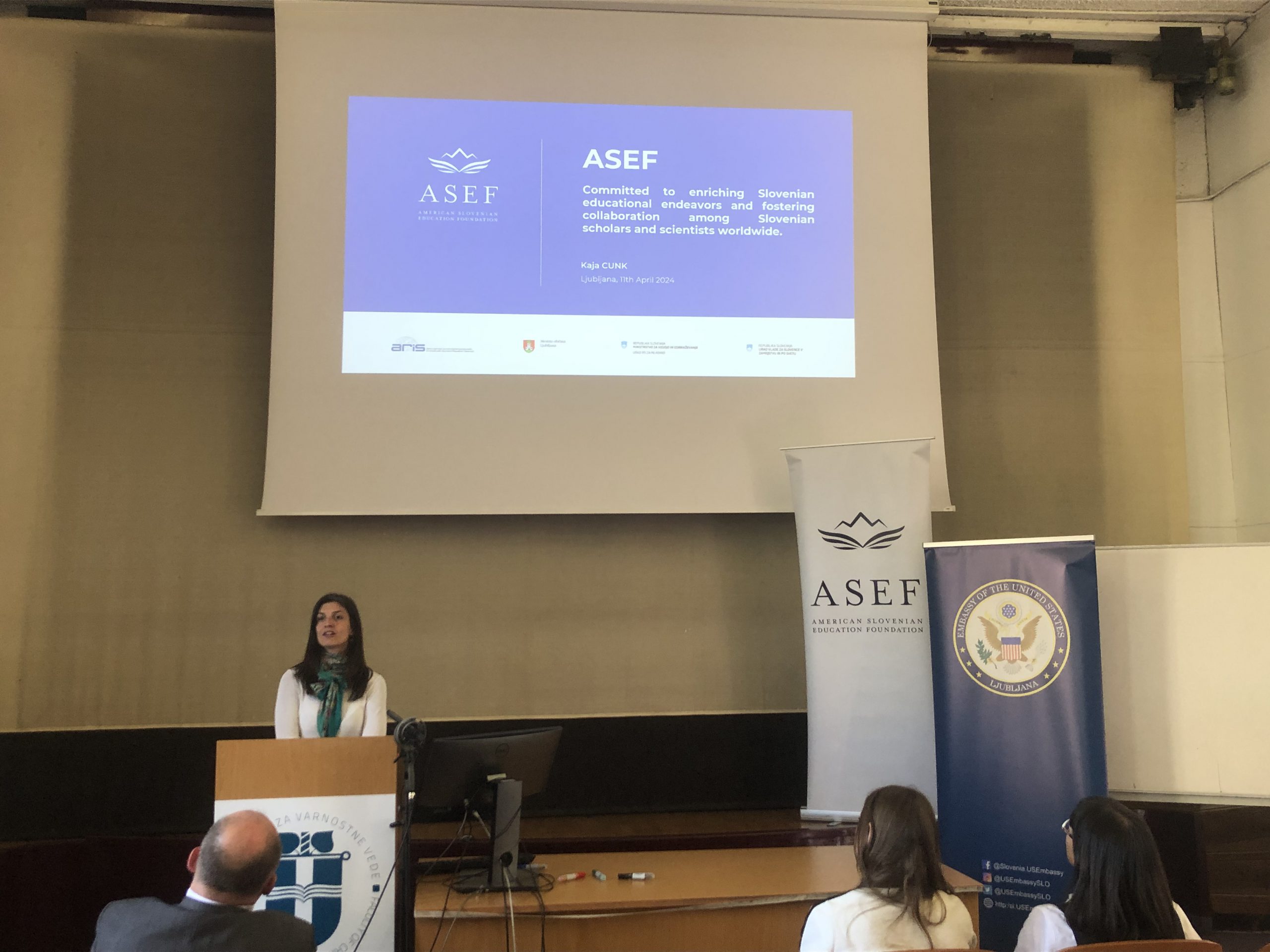
Slovenian American Hybrid Academic Symposium: Promoting Sustainable Development Goals and Safety & Security
On Thursday, April 11th at 3.30PM, ASEF organized the Slovenian American Hybrid Academic Symposium in collaboration with the Faculty of Criminal Justice and Security, University of Maribor. The event, which took place in Ljubljana, was titled “Sustainable Development Goals and Provision of Safety and Security – Think Globally, Solve Locally” and brought together scientists, policy makers and researchers, in an aim to explore innovative solutions to contemporary global challenges. All topics and debates referred to the Sustainable Development Goals (SDGs) established by the United Nations in 2015.
The symposium took place in a hybrid form and was divided into two parts. In the first part, we saw the presentations of Dr Sanja Kutnjak Ivkovich and Dr Gorazd Meško. In the second part, the audience had the chance to participate in one of the two different debates that took place: The Future of Rural Criminology, led by Dr Katja Eman or Sustainable Development Goals: Safety and security led by Dr Rok Hacin.
PART 1: Importance of the Comparative Criminology and Criminal Custice Studies for Better Security
Following the opening address, the podium was taken by Dr Sanja Kutnjak Ivkovich, professor at the School of Criminal Justice at Michigan State University, former Chair of the American Society of Criminology – International Division, and co-founder and co-chair of the Law and Society Association Collaborative Research Network on Lay Participation.
In her presentation, Dr Kutnjak Ivkovich first put forward a typology of CCJ research, its short history and the obstacles posed to such an approach – including the difficulty to design comparative instruments, limited access to governmental documents, a lack of state funding and challenges to the validity and reliability of comparative data. She emphasized a transborder pattern of common issues noted by researchers, calling for a global approach.
She continued by presenting some CCJ research projects which refer to the UN’s Sustainable Development Goals in relation to police corruption and police integrity, policing during the Covid-19 pandemic and external/internal procedural justice. She focused on the police corruption and integrity project and presented how her team developed the theory of police integrity and the methodological framework that allowed them to apply this project in over 10 countries. The results led to the publication of a multitude of works and allowed for impactful connections to be revealed between police integrity and SDG policy implications. She then presented a similar approach to the study of policing during the Covid-19 pandemic. The research showed extensive changes in reactive and proactive activities around the world, organizational changes which police officers did not perceive as effective, and a common pattern of increased stress.
Dr Kutnjak Ivkovich concluded by emphasizing how CCJ research can provide critical empirical evidence about what works and can thus assist in the development of evidence-based policy. While CCJ research is primarily suited to address SDG 16 (Peace, Justice and Strong Institutions), it can also provide evidence for SDG 3 (Good Health and Well-Being), SDG 5 (Gender Equality) and SDG 11 (Sustainable Cities and Communities).
For a more detailed overview of how CCJ research could contribute to the achievement of the aforementioned SDGs, stay tuned for the forthcoming book »Sustainable Development Goals of the UN, Safety, Provision of Security, and Responses to Crime and Security Threats« (eds. Gorazd Meško, Sanka Kutnjak Ivković, Rok Hacin).
Her presentation was folllowed by that of Dr Gorazd Meško, professor and Head of Criminology at the Faculty of Criminal Justice and Security, University of Maribor and a multi-award winning scholar.
Dr Meško demonstrated how the majority of comparative criminological and criminal justice research had been aligned with the UN SDGs even before their adoption in 2015. He presented an overview of seminal CCJ scholars from the US and emphasized the importance of international cooperation. He went on to elaborate on some international comparative research dealing with crime prevention, social disorganization, the legitimacy of criminal justice etc., and regional comparative projects addressing prisoner rehabilitation, fear of crime, crime in SE Europe and so forth.
In the following overview of CCJ materials – international journals, as well as his own works – he put forward the different kinds of comparative studies (international, continental, bilateral…) and presented their benefits and challenges. Dr Meško concluded with the importance of pursuing local safety and security, to adhere to SDGs at state level. National and international change thus stem from local actions.
PART 2: The Future of Rural Criminology
Those who joined Dr Katja Eman in the debate on The Future of Rural Criminology, had the chance to listen to her overview of what this field really is. Furthermore, Dr Eman highlighted how, although the percentage of rural citizens is decreasing in the total population, the actual number of rural citizens is rising. This reinstates not only the importance of the topic, but also the available access to criminal justice and other institutions.
The guests discussed the differences between rural areas in Slovenia and rural areas in Australia and disseminated on how the differing approaches should be locally informed. The debate concluded with an overview of how different regions in the world experience rural crimes in different ways. In the global south, especially, the history of colonialism has left a legacy which heavily affects the constructions of crime and justice.
PART 2: Sustainable Development Goals: Safety and Security
The participants who joined the debate with Dr Rok Hacin, dealt with various questions regarding safety and security in relation to the achievement of SDG no. 16. Besides discussing the crisis of legitimacy in the police force, the group also delved into issues such as the illegal evictions of residents and workers in Ljubljana’s Center Rog and the importance of supporting local cultural agents. In a fervent of questions regarding Slovenian public spaces and autonomous communities, some participants wondered if a similar future awaits the autonomous Plac. Dr Hacin contested, stating that Rog was an isolated case, while others discussed the impossibility of squatters’ rights in Slovenia.
Among other topics was also the future of Slovenian armed forces. Dr Hacin pointed to a crisis in recruitment and attributed the current status to low wages. Some guests predicted this would not change, as Slovenia’s international security standing does not call for more military funding. In wondering about the future of the Slovenian military, some suggested conscription. While this is an especially popular topic in Croatia, the panelists clarified that it is unlikely to become a reality.
The debate concluded with an overview of Slovenia’s current position in relation to achieving SDG 16. Dr Hacin stated that in many aspects, Slovenia is exactly where it should be, and put forward examples of low crime rates and peaceful policing. Although some contested that the reality of peaceful policing is vastly different when it comes to public space and autonomous communities, the participants concluded the debate with a shared positive disposition towards the future of safety and security in Slovenia.
The highly engaging debates were followed by the closing address and an informal gathering where professors, researchers and students shared their findings and opinions on current events.


